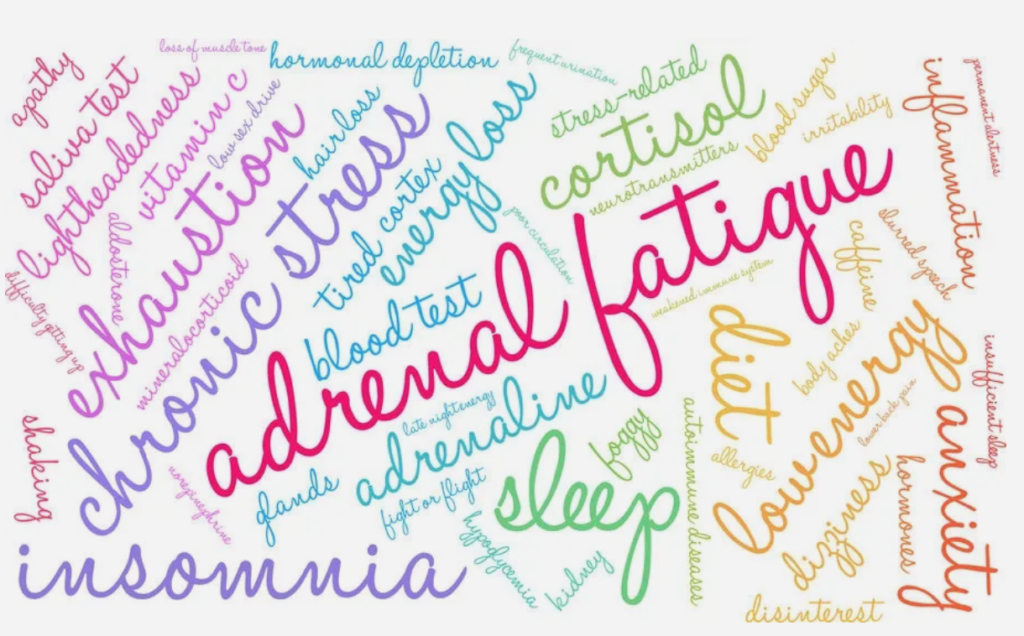
Adrenal Fatigue is Real
Adrenal fatigue is rarely recognized in western medicaine, yet adrenal fatigue is very real and stress definitely plays a role. Your adrenal glands sit just on top of your kidneys and play a large regulatory role in stress response as well as metabolism and immunity. It is the release of cortisol and adrenaline from the adrenals that is largely responsible for regulating these functions.
During the stress response (fight or flight) both adrenaline and cortisol play important roles. Basically, when you feel threatened, your nervous system shifts into high gear to help you manage the perceived threat.
Adrenaline is the hormone that helps you prepare to either fight the threat, or flee from it. As adrenaline is released, your heart rate increases to ensure your brain and muscles are ready for dealing with the threat. Also, more adrenaline increases the level of sugar in your blood to provide your body with enough energy to use quickly while either fighting or fleeing from the stressor. The problem is that in today’s world there is no real fighting or fleeing that occurs from our stress. So that extra sugar gets moved to fat deposits.
At the same time cortisol helps the body convert stored energy into readily usable energy in the form of glucose. This is helpful in activating your body to deal with a real threat. However, when cortisol levels remain high, it can lead to undesirable outcomes, like overeating, weight gain, and anxiety.
Symptoms of Adrenal Fatigue
As you can imagine, too much stress for too long can wear down our adrenal glands and cause us to not feel so great. Some signs that your adrenals may needs some support include:
- sugar cravings
- need or love for coffee or anything caffeinated
- being jumpy or easily startled
- not sleeping well and/or not awakening feeling rested
- retaining fluid
- feeling tired but wired
- feeling like everything is urgent
- difficulty relaxing
- experiencing “low moods” that are unexplained
- difficulty losing weight
What can you do?
Effectively managing your stress can go a long way in supporting your adrenal function. Check out Stress Busting – 8 Simple Strategies to Try Now.
If you are concerned about your adrenal glands, the good news is that there are a number of ways to lovingly support them through nutrition. I encourage you to book a complimentary Clarity Call with me to explore this further if you are concerned.
Genetics partly determines our methods of responding to stress. Although we can’t change our biology or plan for all of life’s everyday stressors, here are a few things we can consider that are within our control:
- By planning our time, prioritizing tasks and trying to anticipate events that may be stressful, we can switch from just coping to implementing management strategies.
- Incorporate breathing exercises throughout the day. Taking time to develop this habit in stress-free moments, will make it readily available during stressful times. Breathing deeply and exhaling fully can help slow our heart rate and bring us into the present moment.
- Healthy relationships can support our mental and emotional well-being when life gets tough.
We live in a stressful world, and the pressure can be stifling. Take this opportunity to consider how stress is affecting you. Stress is a major contributor to the health issues many of us face. It can be debilitating and painful, both physically, mentally, and emotionally.
Check out this recipe for my Adrenal Support Smoothie
Leave a Reply